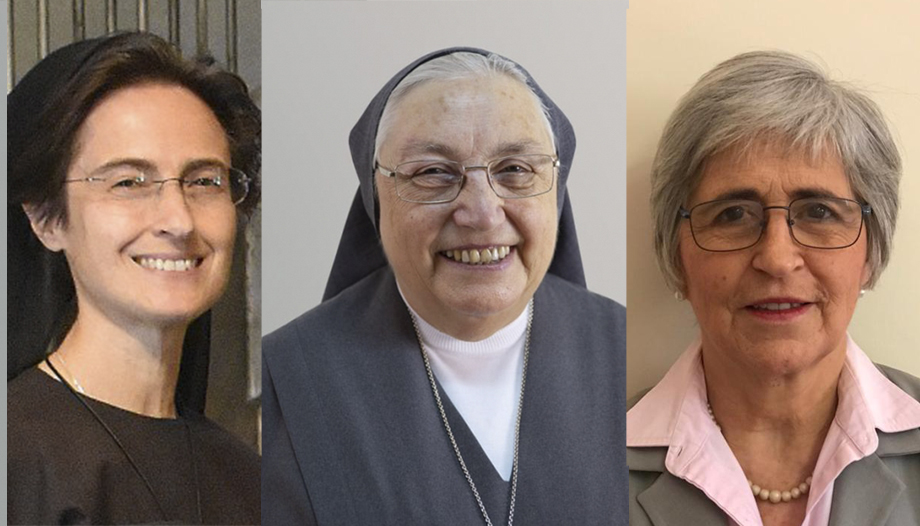He announced this in an interview with Reuters last week. Pope Francis today appointed three women as members of the Dicastery for Bishops. They are Sister Raffaella Petrini, secretary general of the Governorate of Vatican City State, Sister Yvonne Reungoat, former superior general of the Daughters of Mary Help of Christians, and Maria Lia Zervino, president of the World Union of Catholic Women's Organizations.
Two religious women and one laywoman will therefore participate in the process of electing the new diocesan pastors. A dream come true for Maria Lia Zervino, that of "a Church with suitable women". She herself wrote it in a letter published in English translation in the American Jesuit magazine: "I dream of a Church that has suitable women as judges in all tribunals where marriage cases are dealt with, in the formation teams of all seminaries and for the exercise of ministries such as listening, spiritual direction, pastoral care of health, care of the planet, defense of human rights, etc.". For which, by our nature, we women are equally or sometimes better prepared than men. Not only consecrated women, but all lay women from all regions of the world who are willing to serve". And addressing Francis, Zervino added: "And I dream that, during his pontificate, he will inaugurate, together with the synods of bishops, a different synod: the synod of the people of God, with a proportional representation of the clergy, consecrated men and women, lay men and women. We will no longer rejoice just because a woman votes for the first time, but because many prepared lay women, in communion with all the other members of that synod, will have made their contribution and their vote will be added to the conclusions that will be placed in your hands. Probably, Holy Father, you already have this "card in your deck" to put synodality into practice and are only waiting for the right moment to play it'.
On the occasion of the aforementioned interview with Reuters, in response to a question about the presence of women in the Vatican, in light of the new Apostolic Constitution Praedicate Evangelium, the Pontiff had foreshadowed, precisely, the appointment also of lay people to head dicasteries such as "that of the laity, the family and life, that of culture and education, or the Library, which is almost a dicastery".
Prior to today's appointments, the Dicastery for Bishops counted among its members only cardinals and bishops, while the consultors included only prelates and priests.
A choice, therefore, made today by Francis, which goes in the direction of a renewal of the Church's institutions and for the promotion of a model that is more just and closer to the legitimate aspirations of those who represent the source of life par excellence.
Among the women in high positions in the Holy See were Spanish nun Carmen Ros Nortes, undersecretary of the Dicastery for Religious, French nun Nathalie Becquart, undersecretary of the Synod of Bishops, and Salesian nun Sister Alessandra Smerilli, secretary of the Dicastery for the Service of Integral Human Development. Among the laywomen were Francesca Di Giovanni, undersecretary for the multilateral sector of the Section for Relations with States of the Secretariat of State, Argentine professor Emilce Cuda, secretary of the Pontifical Commission for Latin America, Linda Ghisoni and Gabriella Gambino, both undersecretaries of the Dicastery for the Laity, Family and Life: and then Barbara Jatta, the first woman director of the Vatican Museums; Slovenian Nataša Govekar, head of the theological-pastoral directorate of the Dicastery for Communication; and Brazilian Cristiane Murray, deputy director of the Holy See Press Office. German professor Charlotte Kreuter-Kirchof is also deputy coordinator of the Council for the Economy.









